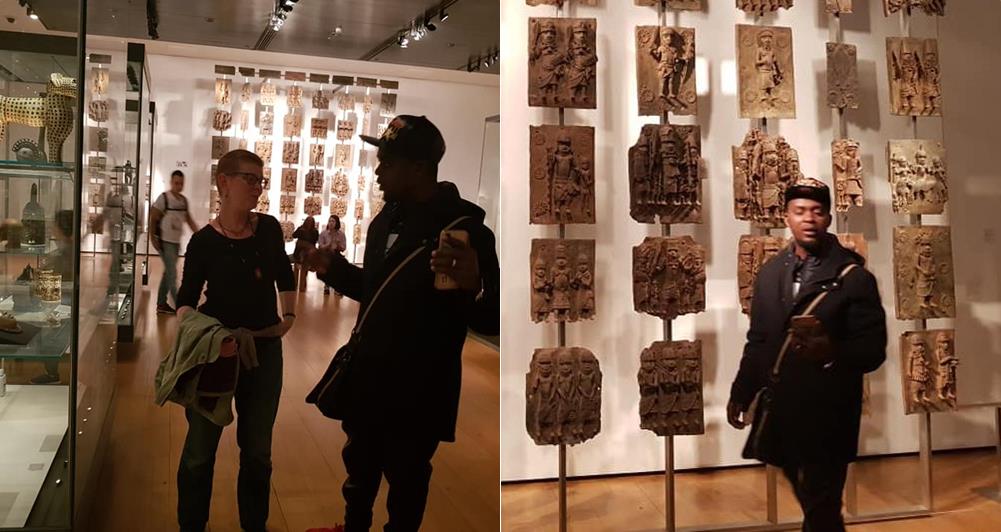
We all know the feeling: you've just shared something personal, and now there's this weird weight in the room, an awkwardness in the air.
You wish you could take it back, pack it up and shove it back into that box of secret things that nobody else needs to know.
But it's too late, and you're left wondering why you thought it was a good idea to share that in the first place.
You see, there's this common idea that we should all be open books; that keeping secrets is bad, and honesty is always the best policy.
However, not everything needs to be put out into the world. While openness and honesty are important, there are certain things that, once shared, can change how people see you, invite unnecessary judgment, or even be used against you.
The problem is, in a world that encourages vulnerability and "speaking your truth," it's easy to forget that privacy is just as valuable. Some things are meant for close, trusted circles-others are best kept to yourself.
If you've ever regretted sharing something too personal, you're not alone. Here are seven things psychology suggests you should always keep private.
1. Your personal past mistakes
We've all had our share of slip-ups and blunders. You know, those face-palm moments that make you cringe just thinking about them. But here's the thing: they're your mistakes, not anyone else's.
Constantly rehashing these mistakes with others can lead to a cycle of negative self-talk and unnecessary judgment. It's like you're handing over a stick for people to beat you with.
Don't get me wrong, it's important to learn from our past and sometimes discussing these things can provide valuable insights. But there's a difference between constructive conversation and self-flagellation in public.
So, keep your personal past mistakes in your own mental vault. Use them as steppingstones for growth, not as conversation fodder for others. Remember, your past does not define you, it only shapes who you become.
This is one of those things that's best kept private, tucked away safely in the confines of your own mind, where it can serve its purpose without causing any unnecessary harm.
2. Family dramas and conflicts
Let's face it, every family has their fair share of drama. Maybe Aunt Mable doesn't talk to Uncle Joe because of that time at Christmas in '98. Or perhaps your parents have a complex relationship that's more like a roller coaster than a smooth sailing ship.
I remember a particular family spat that had gone on for years. It was between two of my closest relatives and talk about awkward!
It was like walking on eggshells whenever the family got together. And you'd think it would create some kind of bond, right? Sharing the same drama, being in the same boat?
But when I started talking about it with friends, it didn't bring us closer. Instead, it felt like I was dragging them into my personal chaos. It led to judgment, unsolicited advice and honestly, some awkwardness that could have been totally avoided.
Keeping such family conflicts private is usually the best course of action. Not only does it protect your family's privacy and dignity, but it also prevents others from forming biased opinions based on your venting sessions.
3. Your long-term goals and dreams
We all have dreams and goals. They're as diverse as we are, ranging from climbing the corporate ladder to backpacking across Europe. These dreams often hold a piece of our soul, our deepest desires and aspirations.
Here's the tricky part. When you share these dreams with others, they become open to scrutiny, doubt and even mockery. Not everyone is going to understand your dream, let alone support it.
I once shared my dream of becoming a writer with a group of 'friends'. The smirks and sarcastic comments I got in return were disheartening, to say the least. It took me some time to bounce back from that and regain my confidence.
Needless to say, this kind of negative feedback can be demotivating and can lead us to second guess our own ambitions. Instead, keep your long-term goals and dreams private until they are solid enough to withstand the harshest criticism.
Your dreams are your own. Cultivate them, nurture them, but most importantly, protect them. Because in the end, only you can make them come true.
4. Your charitable deeds
In the age of social media, it has become common practice to share our good deeds with the world. But here's a fact: according to psychology, the act of charity becomes less altruistic when we publicize it.
The reason behind this is simple. When we share our good deeds, it can shift the focus from helping others to gaining recognition for ourselves. What was meant to be an act of kindness can easily turn into a self-promotion exercise.
In the end, you simply come across as a self-righteous person.
Think about it. When you help someone, and you keep it to yourself, the satisfaction you get is pure and untouched by external validation. You did something good because you wanted to, not because you wanted applause or likes on social media.
The next time you do a good deed, try keeping it to yourself. It's not about keeping a secret, but about preserving the pure joy and satisfaction that comes from helping others without expecting anything in return.
5. Your personal beliefs and opinions
We all have our unique beliefs and opinions, shaped by our experiences, upbringing, and a multitude of other factors. These personal principles guide us through life and help us make sense of the world around us.
However, sharing these beliefs and opinions can often lead to unnecessary debates, conflicts, and even strain relationships. You see, not everyone will agree with you or see things from your perspective. And that's okay.
I've had situations where a conversation has turned into a heated debate simply because my beliefs didn't align with someone else's. And let me tell you, it wasn't pretty. It created tension that lingered long after the conversation ended.
It's not about suppressing your thoughts or not standing up for what you believe in. No, it's about choosing when to share and with whom.
After all, your beliefs are your own. They are a part of who you are and aren't dependent on others' approval or agreement. So keep them close, nurture them, but most importantly, respect that others have their own too.
6. Your financial status
Money, the root of all evil, or so they say. Well, it might not be evil per se, but it sure does have a knack for stirring up trouble when it's brought into conversations.
Whether you're rolling in dough or have got just enough to get by, your financial status is something that should remain private. It's not a measure of your worth or success, and it's certainly not a topic for casual conversation.
I've seen friendships strain and relationships crumble because of money matters coming into the open. It may breed jealousy, resentment, or even lead people to take advantage of you.
So whether you've just landed a hefty bonus or are struggling to pay off a loan, keep it under wraps. Your financial status is your business and no one else's. Keep the focus on who you are as a person, not what's in your bank account.
7. Your personal and intimate life
Last but certainly not least, let's talk about your personal and intimate life.
This one seems like a no-brainer, right? But you'd be surprised how often people overshare when it comes to their love life or other personal matters.
Whether it's the butterflies you get when you see your partner, the argument you had last night, or the intimate details of your relationship, these are moments that are meant to be private. Sharing them can strip them of their intimacy and specialness.
I remember a friend who used to share every little detail about her relationships with our group. It was like living in a soap opera. And guess what, it didn't add anything to our friendship, if anything it just made things awkward and uncomfortable.
"When you overshare, you open up to judgment and criticism from others. You also become vulnerable to manipulation and exploitation. If you share too much with someone, they may start to use your information against you."
So keep the personal stuff personal. It's special because it's yours and yours alone. Cherish it, protect it and most importantly respect it by keeping it private.
Feeling stuck in self-doubt?
Stop trying to fix yourself and start embracing who you are. Join the free 7-day self-discovery challenge and learn how to transform negative emotions into personal growth.
















Comments